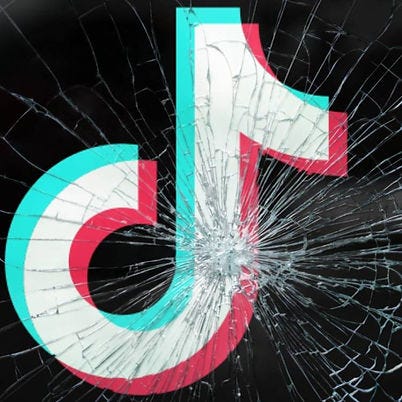One More Reason Not To Join TikTok
TikTok burst on to the scene in 2016 and quickly became one of the most popular platforms on the planet spurring the creation of millions of memes and imitators. However, a new study has shown just what the cost is for this "free" service.
If You Are Not the Customer...
There is an old adage that if you are not the customer, you are the product. Social media is the best and most poplar example of this. Social media companies allow you to sign up for and use their services for no fee while taking advantage of all the data you are sharing. For Facebook, they sold their data to advertisers and, in at least one case, a political campaign looking to maximize voter turnout [1]. Another example would be YouTube which offers a very little cut of their advertising revenue while benefiting from all the free content its users post.
Maybe this is why no one questions TikTok or any other platform from doing the same thing. However, itappears TikTok is transfering data to unknown parties far beyond it's competitors.
Just How Bad It is?
New research published at URL Genius foundthat TikTok is sending more data out to third-parties than any of its competitors. The study found that, when a user accesses TikTok, 14 different URL's are accessed and 13 of them are third-parties. Worse still, no one is quite sure what those 13 sites are or where your data is going [2].
As CNBC reported "With third-party trackers, it's essentially impossible to know who's tracking your data or what information they're collecting, from which posts you interact with — and how long you spend on each one — to your physical location and any other personal information you share with the app." [3].
Where is Your Data?
The short and perhaps only answer is China. This should come as no surprise when China's 'social credit' system ranks citizens and punishes them if the Communist Party deems them untrustworthy [4]. Further, data on individuals allows China to determine which individuals can be manipulated or coerced into taking actions that benefit their interests.
China's industrial espionage has been rated by U.S. Immigration and Customs Enforcement officials as the leading threat to U.S. technological security. It is well documented that the international technology power house, Huawei, was started using technology stolen abroad and brought back to China. Finding individuals willing to steal industrial secrets or engage in any other type of espionage is infinitely easier when the Chinese already know the weak points of millions of Americans.
What Can We do?
Short of deleting your TikTok account? Not much. TikTok is a Chinese company and not subject to many of the disclosure requirements US companies are.
Lawmakers should be pushed to action to enforce stricter controls of data, much like the EU is going now, in order to protect American citizens and their interests. Sadly, as we have seen in recent years, China is a sensitive topic in Washington. If we cannot even get our elected representatives to speak out against a genocide happening in Xinjiang, what hope do we have they will push back on the legal transfer of our data?






